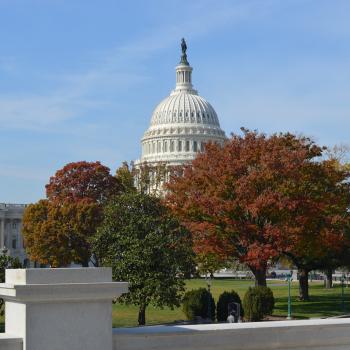Isn’t this a little premature?
While there are many waiting for the release of special counsel Robert Mueller’s final report on the Russia probe with bated breath, just the prospect is causing some discomfort for some of the captains of Team Trump.
If you’re wondering to yourself why the team that has insisted that there is no trace of collusion to stress over is now suddenly stressed, you would not be alone.
It’s a valid thought, but for now, according to sources reported on by Bloomberg on Monday, the White House is already considering going the route of executive order to block portions of the report from Congress and the public.
There are things they don’t want you to know.
If what some believe is correct, the time for making that decision could be growing short. One official is suggesting a possible February release for the report.
Democrats who now control the House have said they’ll demand that the department hand over the report — and that they intend to make it public. The White House may counter by asserting executive privilege to prevent key findings from being turned over, according to people familiar with internal deliberations.
That’s not to say that whatever the report ultimately shows condemns the Trump team, or Donald Trump, himself. In fact, the prudent approach, at this point, would be for those who suspect activities most foul to blunt their expectations.
Sure, there have been plenty of indictments and quite a bit of lying to authorities by those involved in Trump’s campaign efforts, but it is very possible that we’ve already seen the worst of it.
As it is, special counsel is not required, by law, to turn over any of his findings to Congress or to make them public. He only has to give his finding to department leadership.
Whether it is acting Attorney General Matt Whitaker or William Barr, who has been nominated to the position by President Trump (but not yet confirmed), they will determine what happens with the report, once it is final and submitted.
Considering both men were chosen specifically because they’ve given the impression that they would run cover for Trump, should conditions appear unfavorable, you can see why Democrats want to take other actions, in the interest of transparency.
Trump’s TV lawyers, however, sit at the ready, almost as if they expect it to be bad.
Trump and his lawyers expect to get an advance look at the report if there’s a chance it will be shared beyond the Justice Department. They may assert executive privilege to withhold any information related to Trump’s time in the White House or during the transition, depending on what’s included.
“We will look at it and see if the president thinks there is a valid claim and if there is, do we want to make it,” said Trump’s lawyer Rudy Giuliani. “We reserve the right. We don’t know if we have to, but we haven’t waived it.”
Giuliani said the White House would be willing to fight in court to preserve material it considers privileged.
By “privileged” we can safely assume they mean “damaging.”
It’s not like presidents have not used the claim of privileged information before, in order to block a full release of information to the public.
The White House could base an assertion of executive privilege on a 2008 opinion by Attorney General Michael Mukasey, under which information was withheld from Congress concerning the investigation into the leaking of CIA officer Valerie Plame’s identity. The White House also might try to cite former President Barack Obama’s use of the privilege to prevent the release of documents related to the “Fast and Furious” gun-walking scandal, although a district judge rejected the argument.
Democratic Representative Jerrold Nadler of New York, the new chairman of the House Judiciary Committee, predicted any effort to suppress Mueller’s report “will not hold up in court.” He said a claim of “executive privilege can always be pierced by a specific and legitimate criminal or congressional inquiry.”
Still, the Trump legal team has already turned over thousands of documents to Mueller’s investigators, voluntarily, in order to avoid the inevitable subpoena struggle.
Doing this gives them a bit more breathing room, when it comes to using executive privilege.
There’s also the consideration of intelligence sources and how releasing this material might effect their work.
Look for heavy redactions from the intelligence community.
It’s possible that Mueller has anticipated that White House lawyers will try to suppress his findings and has moved — or will move in coming weeks — to outflank their efforts, this official said. Mueller could do so by having a grand jury make a presentment, which is a public report without a criminal charge, the official said. Mueller also could seek to indict Trump, although the Justice Department has a standing policy that a president can’t be indicted while in office.
That would be a worst case scenario, I’m sure.
Trump’s legal team are already working on a counter report, led by Jane Raskin, another Trump lawyer, to contradict whatever is in the report that no one has seen, yet.
Yeah, a little side-eye here is warranted.
Lawmakers, too, have options they could exercise. If Mueller’s findings aren’t made public, they could call him to testify before Congress, where he’d be pressed to disclose what he discovered.
“Trump can’t stop Mueller from going to Congress and talking about everything that’s in his report,” said [John] Dean, the former Nixon counsel.
That’s true.
Whatever the case, there is a lot of speculation over what Mueller’s final report will hold, and it seems everybody thinks it will be bad for Trump.
We’ll see.










